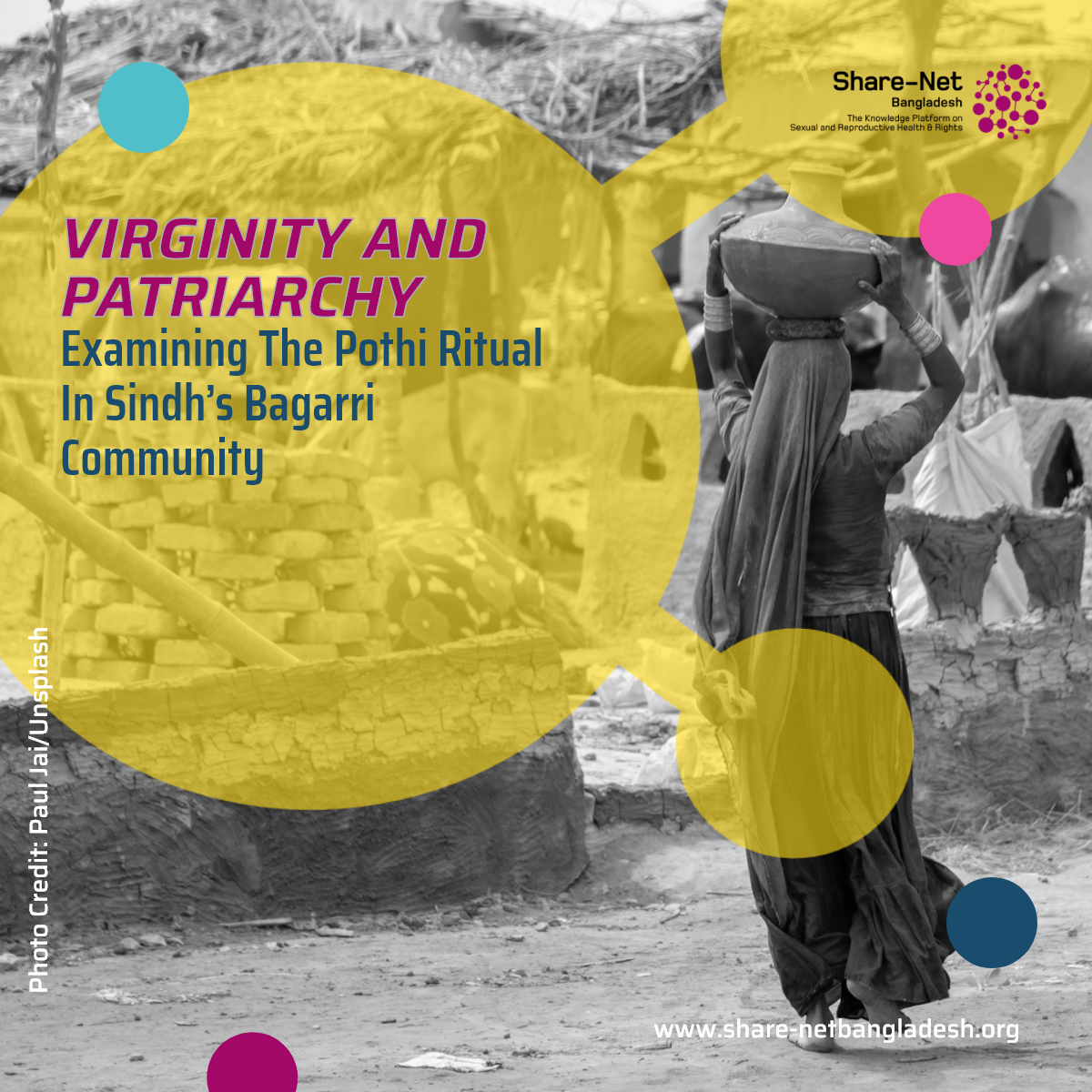Virginity and Patriarchy: Examining the Pothi Ritual in Sindh’s Bagarri Community
The paper “Gendered Virginity in Pakistan: Rituals, Trials, and Punishment for a Girl in a Bagarri Community of Sindh” explores how the Pothi virginity ritual enforces gendered power dynamics in the Bagarri community of Pakistan. Conducted by a Bhopa priest, the ritual determines a bride’s virginity using wheat grains. Passing the test brings acceptance and honor, while failure invites severe punishment overseen by the local Panchayat.
The study highlights the ritual’s role in maintaining patriarchal norms, where women’s bodies become sites of societal control. Virginity is symbolically linked to cultural and spiritual purity, with the Pothi ritual reinforcing a rigid moral framework. Using ethnographic methods like participant observation and interviews, the study reveals how this practice reflects broader issues of inequality and governance in traditional societies.
Critically, the paper questions the ritual’s fairness and implications for women, especially given the absence of parallel expectations for men. While some community members view the ritual as preserving cultural heritage, others see it as outdated and oppressive. The Panchayat’s role in adjudicating punishments underscores the systemic reinforcement of patriarchal values.
The study calls for a nuanced understanding of such practices, urging cultural dialogue and education to address inequities without undermining cultural identity. It contributes to ongoing discussions about the balance between tradition and human rights, emphasizing the need for gender-sensitive reforms in traditional societies.
Source: Gendered Virginity in pakistan

